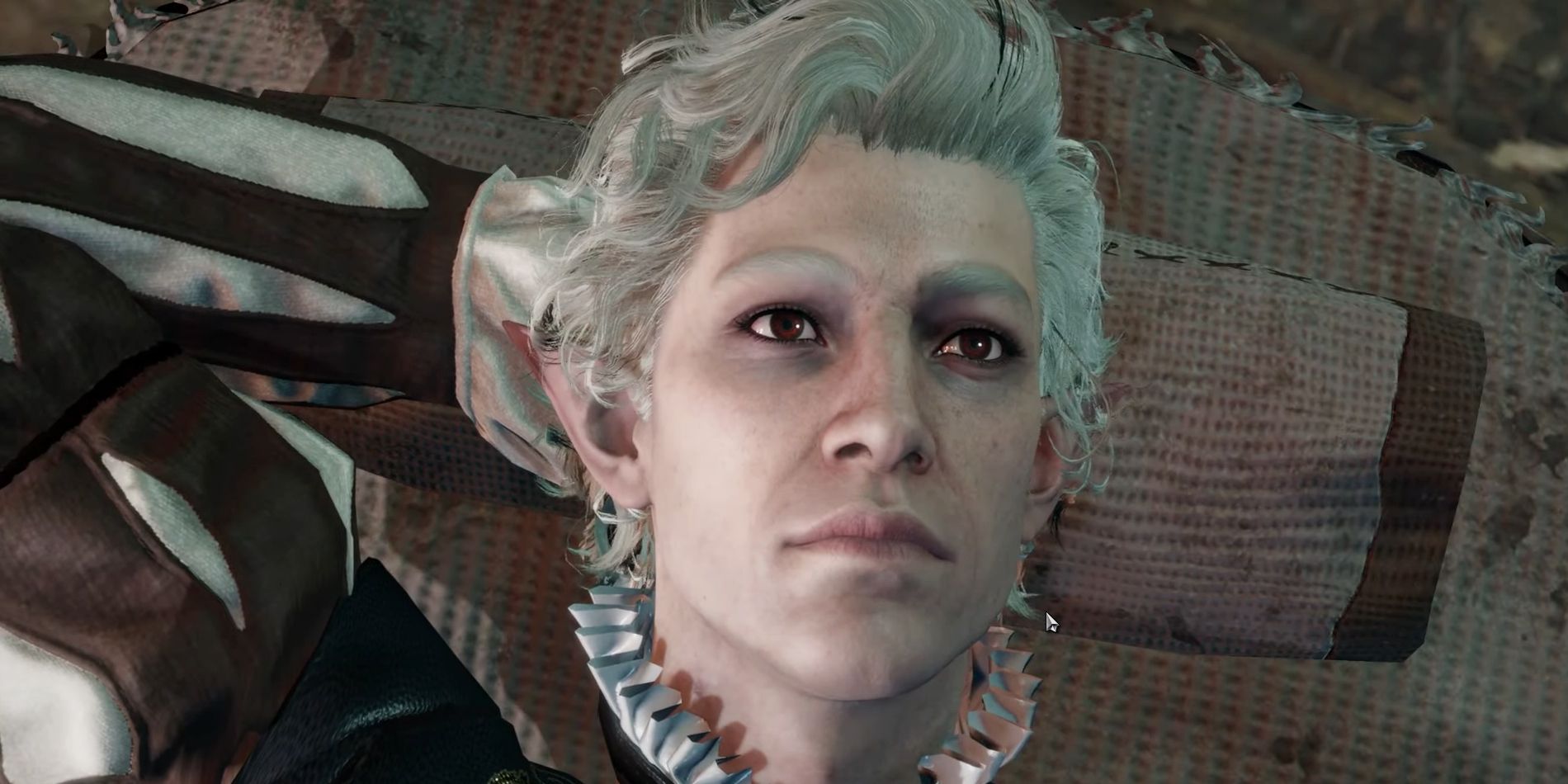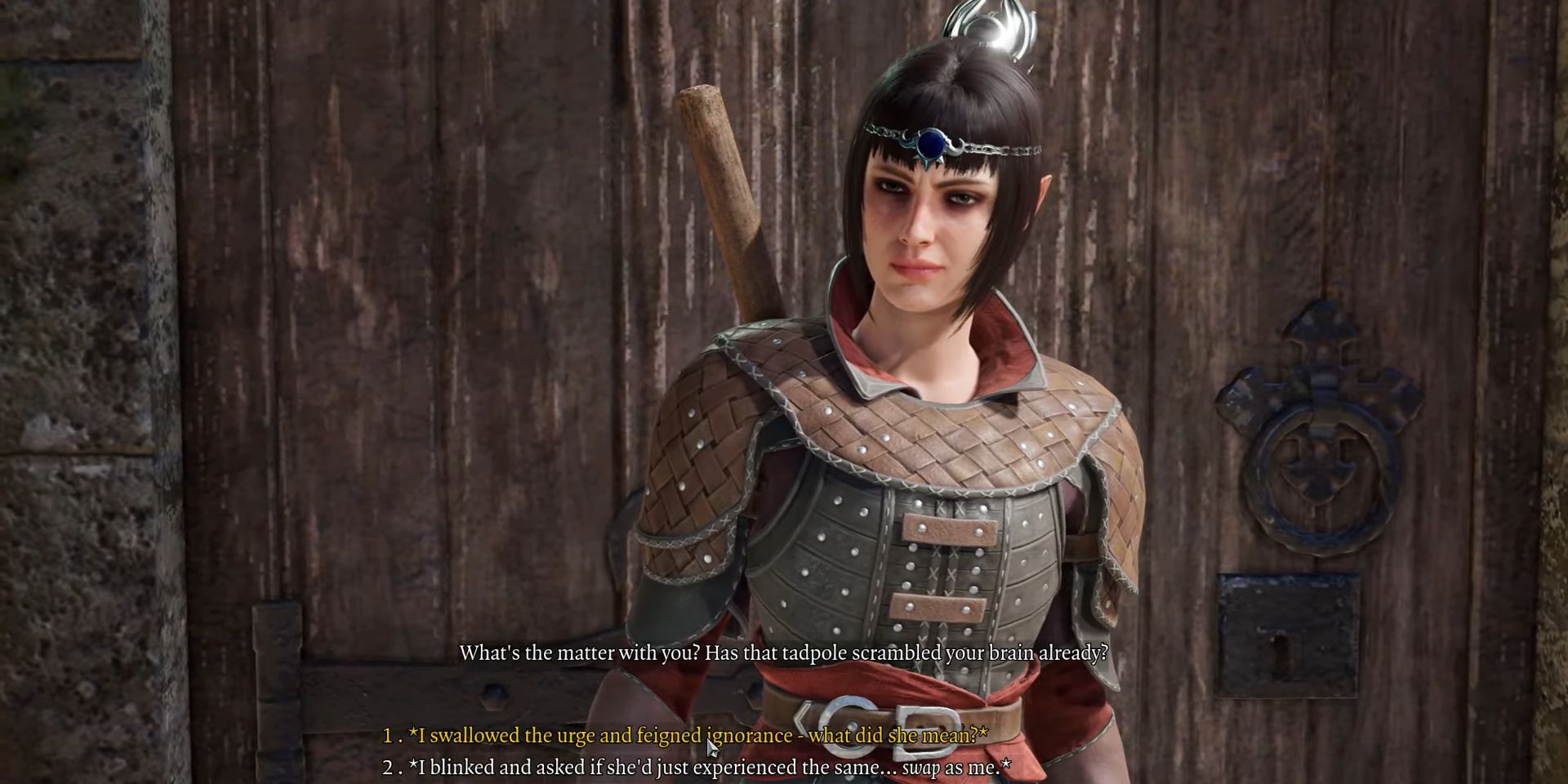Larian Studios' rendition of the long-awaited Baldur's Gate 3 looks quite promising, but its past-tense, internal-first-person dialogue system is a weird choice that breaks immersion. Larian first showed fans the dialogue choices as part of the Baldur's Gate 3 gameplay reveal, and it stood out as one of the game's only glaring flaws so far.
Although Larian Studios earned renown for its critically-acclaimed Divinity: Original Sin RPGs, there's extra pressure on Baldur's Gate 3 for of its use of the Dungeons & Dragons property. The Divinity games were already great translations of what it feels like to play a tabletop RPG session, with an emphasis on storytelling and player freedom, and the studio's actual D&D game looks like it will continue this feeling. Baldur's Gate 3's combat system, for instance, is integrated into its other systems so thoroughly that players can damage enemies by throwing random items from their inventories. But this otherwise immersive experience is what makes the game's dialogue system so jarring.
In Baldur's Gate 3, dialogue choices are presented in past-tense, first-person narration. Instead of simply selecting what the character says (ex: "What do you mean?"), players choose a phrase that often includes both narration of that character's actions or thoughts and a past-tense version of the thing they say out loud (ex: "*I swallowed the urge and feigned ignorance - what did she mean?*"). This necessitates all dialogue options be surrounded by asterisks, indicating they're internal thoughts rather than spoken word. While the Divinity games' similar, internal thought-based dialogue choices created a few problems that took players out of the story, Baldur's Gate 3's first-person and past-tense phrasing makes these issues much worse.
Why Baldur's Gate 3's Internal Dialogue System Is A Bad Idea
Role-playing games are about becoming seamlessly immersed in playing a role, and the "internal thought" dialogue system adds barriers between the player and their character. The first major barrier comes from the lack of clarity between what's being said and what's being thought. Early in the Baldur's Gate 3 gameplay demo, for example, the player character - secretly a vampire - was able to choose the phrase, "*Had she seen what I truly was?*" Since other dialogue choices include phrases like "I asked," it's not clear if selecting this option is supposed to mean the vampire actually asks the question out loud (a weird thing to do, if he wants his vampirism to remain a secret) or simply wonders it to himself. If the character's spoken words were just plainly written out ("What did you see?"), players wouldn't need to do any mental math to figure out what their character is saying.
The first-person language causes issues with immersion, too. The entire point of a dialogue system is to allow players to control what their character says and does. If that system is going to include internal commentary choices, it's much easier for fans to immerse themselves if their character's internal dialogue doesn't sound like it has a mind of its own. A player who reads "*You wonder if she's discovered your secret.*" immediately understands they're meant to interpret that as their own character's internal thought. "*I wondered if she'd discovered my secret.*" would work in a first-person novel, where the character is already established as a separate, developed entity, but it's jarring to hear from a video game protagonist, whom the player is supposed to be crafting themselves. The Divinity: Original Sin series went with "you"-based internal dialogue, so Larian's choice to move things to "I" in Baldur's Gate is confusing.
All of this is exacerbated by the past-tense language. It's yet another hoop to jump through, and it's also confusingly at odds with D&D. Most tabletop RPG games are run in present-tense, since it's most intuitive and helps players feel more immersed. Dialogue choices like "What did you see?" read like something a D&D player is saying out-loud, right now. "*Had she seen what I truly was?*" reads like someone other than the player, in the future, describing something they said - or possibly wondered to themselves - in the past, which plays out on-screen in the present. It's a huge mess, and it's entirely unnecessary.
The advantage of Baldur's Gate 3's dialogue system is that it allows players to choose not only what their character says but how they say it. The vampire doesn't just ask what the woman means - he swallows his urge to bite her, feigns ignorance, and then asks. But this could have been done without the ridiculous, complicated word games, like so:
*You resist the urge to bite her and feign ignorance.* "What do you mean?"
It seems the only reason something like this wasn't implemented was to allow for dialogue sessions that take place entirely in the hero's mind, as seen the gameplay demo, when the vampire character reflects on his day before bed. But plenty of RPGs have successfully told great stories with only out-loud dialogue selection. Whatever nuance was gained by going with Baldur's Gate 3's internal dialogue choices doesn't seem worth the loss of immersion.
Baldur's Gate 3's release date has not yet been announced, but it is planned to launch on Google Stadia and PC.


